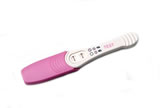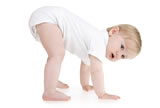Getting Pregnant After 35
| on 30th July 2015 |
We have all heard the term “biological clock”, and we all know what it means. There is an age where it becomes unrealistic for women to bear children, and this is when the clock is supposed to “stop”. This term is mainly used and referenced in regards to the chances that a woman can get pregnant. The magic age here seems to be 35. After that age, it is supposed to become less and less likely that a woman can get pregnant. Facts are starting to come to light, however, which indicate that this belief and the advice that comes with it is antiquated. Mainly, that this information comes from French medical records dating from the late 1600's to early 1800's. This isn't good, and more women need to be made aware of this so they can start looking elsewhere for advice concerning the age at which it becomes unrealistic to have children.
This information isn't just useful from a medical perspective either. This “35issue” has ripple effects for women that go out to the societal and professional level. Many plan their entire lives around that number and society is somewhat shaped around those plans. For example, a woman wants to go to a 4 year college to get a degree in a field where she can realistically go as far as she can within 15 years. At that point, the alarm on that 35 year clock is about to go off. As far as timing goes, this doesn't leave a lot of room for error in regards to her having to finish school and progress in her career in the time frame that is needed. And lets not forget about peer pressure and her mom wanting grandchildren. Sounds like a lot of stress just to live a full and productive life.
Imagine then if that “35 issue” turned into 40 or 45. If women knew that they realistically had 5 or 10 extra years to get financially stable enough to provide a good life for their children, (studies show that it takes an average of $250,000 dollars to raise a child to the age of 18) how do you think that would affect them? It would more than likely affect them in a positive way that begins with less stress. They have more time now, and that's always a good thing. Modern research, not that from the middle ages mind you, have shown a very interesting fact: The correlation between a woman’s age and being able to conceive, carry and bear a child does not rest as heavily on age as we once thought. It rests mainly on the time frame between ovulation and having sex, and this time frame is set by a woman's age
Now, it goes without saying though that every woman’s body is just a little different from everyone else. That being said, there is no magic number to go by in regards to how big the window is between ovulation and the latest you can have sex in order to optimize your chances of getting pregnant. With some women, it may be the typical 24 hours. Others may have up to 3 days. It really depends on your own personal medical circumstance and, of course, your age. Age still is a factor in all this, but it really is not as much of one as people have thought it was in the past. A woman just needs to know her body, and her medical history just as well, so she can make informed decisions in this regard.
Knowing that your window of opportunity is the main factor in getting pregnant and that it might be larger than you thought, can go a long way in making the process of getting pregnant easier. There won't be as much stress and you won't have that “number” looming over your head. After these changes in numbers and the factors you have to look at in regards to when to get pregnant are more widely realized, there might even be a small shift in how the rest of society views this and then reacts to it. This may be a big deal for each individual woman, but it has the potential to be a big deal for society as a whole as well.
We all base our lives on time. Time to get up, go to work, go to school, when to come home, how long the commute is going to take. The list goes on forever.(No pun intended) But of all of these acts that we have to perform within a time frame, which is more important than the timing of a woman having a child? When you get right down to it, none. Think then of the societal ramifications if the majority of women throw out the old “35” rule. As noted before, the ripple effects on society would go wide and deep. This is why it is something to really think about and research more. Not to put more pressure on women, but this is no small deal.
Think also of the fact that not every woman wants or plans to have all of their children within a certain time frame. Not every woman wants to have 3 children within 5 years. Some families are planned to where there is one child every 5 or 6 years. This is because that larger families where the siblings are spaced rather far apart are easier to self-maintain. Meaning that the older children are more able to help with their younger siblings and jobs pertaining to maintaining the house. If you have what is commonly referred to as “stair step” babies, that really isn't the case. What you have there is quite a few full-time jobs with no weekends off for quite a few years.
This is important to keep in mind if women can realistically have children at ages older than previously thought. The plans that they thought they had to make because of a small window of opportunity, well, they don't have to plan that way anymore. They can make plans that are more suited to them personally, instead of planning around a number that was kind of set in stone 400 years ago. Back to that medical hiccup for a minute. People are finding it rather odd that the most important thing a person can to with their body, have a baby, has a time frame wrapped around it that was set long before there was even electricity. Medical advances have been made in virtually every aspect of medicine, health and well-being because we learn more about the human condition with each passing generation. Why wasn’t that the case with women, age, ovulation and child birth?
It is common sense that women have had children forever. Literally. It is also common knowledge that some of the brightest minds in history have worked in the health and medicine fields. This is starting to sound like an epic fail on the part of the medical world that they dropped the ball on this information. Information that sounds, to the lay person, like it is something that shouldn't have been too hard to figure out by professionals. Not to sound too “conspiracy theory” here, but why have the intricacies of the most important job of anyone on the planet been relegated to back room status while they diagnose, make new drugs for, and “treat” new internal medical issues every month? It is understandable if everyone thought the information from France was conclusive and could not be expounded upon, but had anyone ever reviewed this information periodically and compare it to the other relevant advances we have made? It seems not. We do this in other fields of medicine, why not with the process of getting pregnant?
Regardless of all that, what's done is done, we now need to focus on how this information impacts women and society. Almost everything in modern society is loosely planned around and done, with the time frame of the age of women and the children they bear. If that time frame expands by 10 years........ask yourself how that will impact you personally. If a reader of this piece is a 35-year-old male with his own tool and die business and 3 children who are poised to take over that business, how will this affect them? If the reader of this piece is an 18-year-old medical student, how will this affect him or her? Or a school teacher? Or a real estate developer? Or an up and coming politician? Or a stay at home mom? The time when every woman can have a child may not directly affect everyone, but it is sure to have an indirect effect on everyone. The extent of which will vary from person to person, but when taken as a whole, when looking at this from the perspective of society and not just the individuals who make up that society, you will start to see how direct the effects will turn out to be within a few generations.
There have been studies done which indicate that the children of parents who started bearing those children at an older age are, by and large, more apt to be better at school studies, socializing, critical thinking and growing into maturity quicker. In short, they may be better at all this simply because of the maturity of their parents. The intelligence and maturity that a parent passes on to their child, even at a very young age, will have a lasting effect on that child. The same can be said for a parent's lack of those traits. We just need to be open and honest about this “theory” in order to see it for what it is. That, and if more studies are made to verify the authenticity of the recent findings of ovulation, timing and age, then more studies should be done in regards to how childbirth in later years will mentally, intellectually and emotionally affect those children born to more mature parents.
Now, this is not to say that younger couples in their 20's and 30's are less mature than their 40 something counterparts. But by and large, this will be the case. There are exceptions to every rule, of course, and this brings up the next ripple effect that these new findings may have. If the studies which indicate that children of more mature parents are more mature themselves, actually bear fruit, then in time the maturity and intellectual level of society will increase. Now if this turns out to be the case, think of the long term effects that will have on society. Nothing but good things should be coming from that. This is all speculation at this point, of course, putting the cart before the horse if you will, but it is something we should all be thinking about.
It should be noted that this new information has been provided not by someone who is directly involved in the medical field. Rather, David Dunson, the man responsible for finding this out, is a bio-statistician. He is a professor of statical science at Duke University. Does this mean he doesn't know what he's talking about? No. This means that his work can go across many fields of expertise based on statistics and current facts of any given field. What he does can help expand the current knowledge in any given field by staying above and detached from it by way of the statistics he garners from it. Sometimes people with little or no vested in a field of study are best equipped to help expand the knowledge within that field of study because they don't have the biases or slants that come from being in that field for years upon years.
That being said, this whole topic has gotten very interesting for a lot of people. From parents, to doctors, and to the people who run the critical analysis of the health care field, we can all agree that this is a topic of great interest and importance.
Video Source: Youtube
Copyright © 2012 Babiesbase.and respective owners. All rights reserved.
Other product and company names shown may be trademarks of their respective owners.











 Sign up for our week by week
Sign up for our week by week


